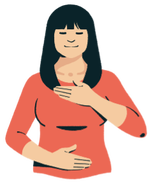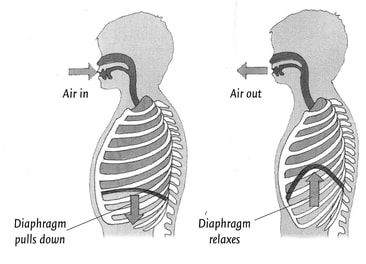|
The magic power of Diaphragmatic Breathing  Breathing happens automatically like other bodily functions, such as:
These functions are controlled by our autonomic nervous system, which has two parts. The sympathetic system, which usually gets these functions going and the parasympathetic system, which stops them from happening. The sympathetic controls our fight-or-flight response, while the parasympathetic is in charge of everyday processes. Even though these functions are automatic, we can help regulate our automatic nervous system, with diaphragmatic breathing. This has many benefits — your heart rate and blood pressure can be reduced, helping you to relax. This all helps decrease the amount of stress hormone, cortisol, released into your body. Diaphragmatic or tummy breathing also helps:
Many of us breathe only using our upper chest cavity and when we are asked to breathe deeply we pull our shoulders up and expand the upper part of our chests. Breathing in this way does not make use of the lower capacity of the lungs. Diaphragmatic or deep tummy breathing is named after the diaphragm muscle. This muscle pulls air down into the lungs (like bellows) and as it relaxes, it rises up and forces air out of the lungs. Learning to do diaphragmatic or tummy breathing takes time and conscious effort. Here are some instructions:
Practice tummy breathing regularly, eg when you first sit down to watch TV every night or before you go to bed. Once you've perfected the art you'll be able to use tummy breathing to calm yourself when you're under stress. If you are struggling to tummy breathe, just contact us we can help. Phone: 03 3775280 Email: [email protected] Comments are closed.
|
AuthorShonagh O'Hagan Archives
July 2024
|


 RSS Feed
RSS Feed